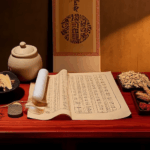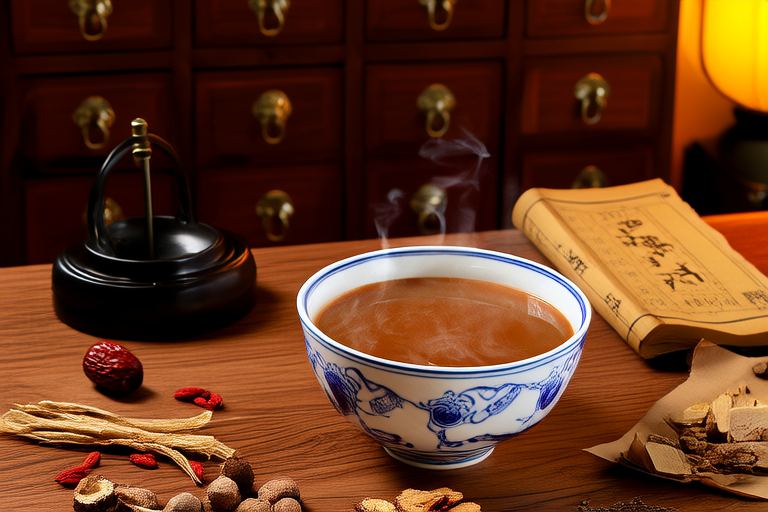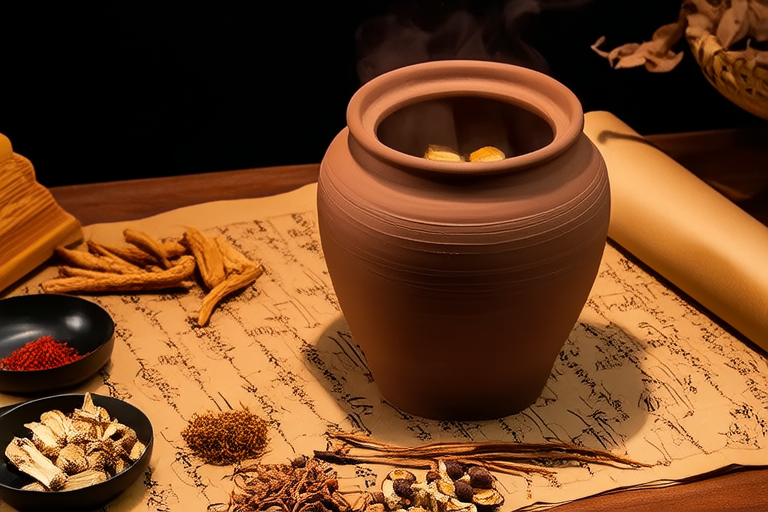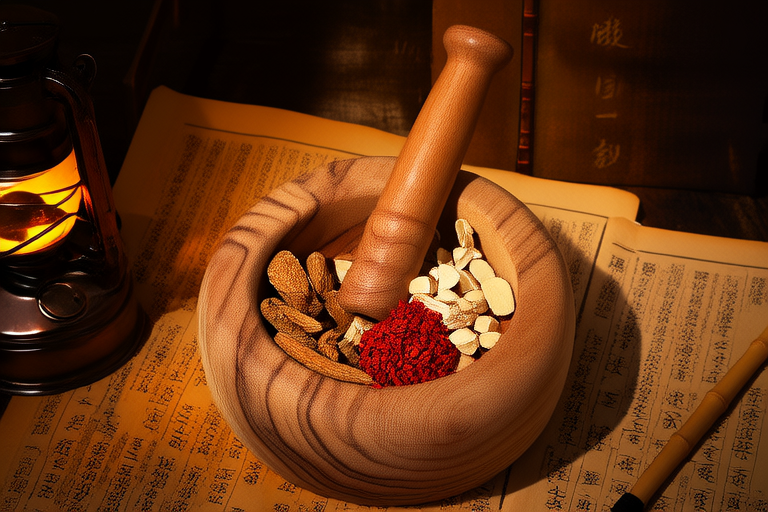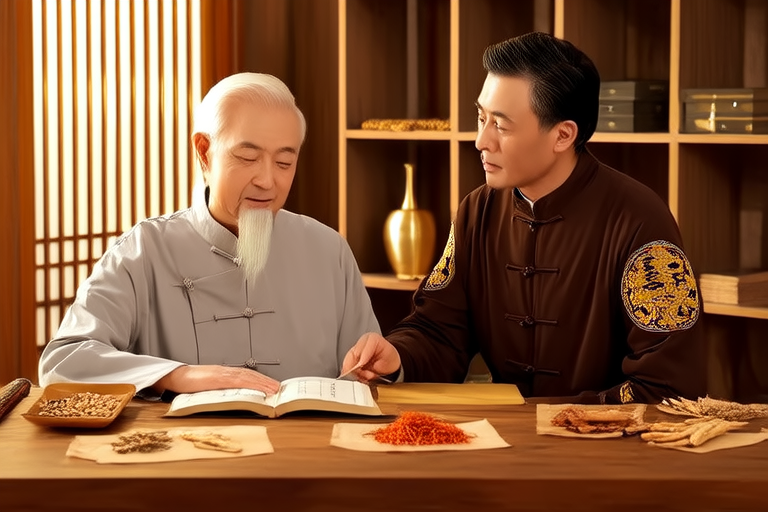Introduction to Health Preservation: Exploring Traditional Chinese Medicine’s Wisdom
The concept of health preservation, or “yangsheng” in Chinese, has been an integral part of traditional Chinese medicine (TCM) for thousands of years. It emphasizes the importance of maintaining one’s health through various methods, including diet, exercise, and emotional regulation. This article will introduce the basic principles and historical background of TCM, discuss its relevance in modern life, explore common health preservation techniques, examine how to adjust these strategies according to different seasons and individual constitutions, and finally look at the benefits of combining TCM with modern medicine.
Basic Principles and Historical Background of Traditional Chinese Medicine
Traditional Chinese medicine is based on the belief that good health is achieved when the body’s vital energy, or “qi,” flows smoothly throughout the body. This flow can be disrupted by external factors such as environmental changes, dietary habits, and emotional stress. The aim of TCM is to restore balance to the body by promoting the smooth flow of qi and blood.
The history of TCM dates back over 2,000 years, with its earliest records found in ancient texts like Huangdi Neijing (The Yellow Emperor’s Inner Canon). These texts describe the theory of yin and yang, which posits that everything in nature exists in pairs of opposites that are interconnected and interdependent. For example, day and night, hot and cold, and male and female are all examples of yin-yang pairs. When these forces are in harmony, they promote health; when they are imbalanced, disease may occur.
Another fundamental concept in TCM is the five elements theory, which states that all things in the universe are made up of wood, fire, earth, metal, and water. Each element corresponds to specific organs in the body, emotions, and seasons. For instance, the liver is associated with wood, anger with wood, and springtime with wood. Understanding these relationships helps practitioners diagnose and treat patients more effectively.
The Importance of Health Preservation in Modern Life
In today’s fast-paced world, many people suffer from chronic diseases due to poor lifestyle choices, including unhealthy diets, lack of physical activity, and excessive stress. Health preservation offers a holistic approach to preventing illness and promoting longevity. By incorporating TCM principles into daily routines, individuals can improve their overall well-being and reduce the risk of developing serious conditions later in life.
Health preservation practices can also help alleviate symptoms of common ailments such as fatigue, insomnia, headaches, and digestive issues. For example, regular acupuncture treatments have been shown to relieve pain and stimulate healing processes within the body. Similarly, herbal remedies prescribed by licensed practitioners may provide relief from inflammation, allergies, and other discomforts.
Common Health Preservation Techniques
Dietary Regulation
One of the most important aspects of health preservation is proper nutrition. In TCM, food is classified according to its properties—such as being warming or cooling—and its effects on different organs. For example, foods like ginger and garlic are considered warming because they stimulate circulation and digestion. On the other hand, cucumbers and melons are cooling and can help reduce heat in the body.
A balanced diet should include a variety of fruits, vegetables, grains, proteins, and fats. It’s also essential to eat seasonally and locally whenever possible. Seasonal produce contains higher levels of nutrients than out-of-season alternatives grown in controlled environments. Additionally, preparing meals at home allows for better control over portion sizes and ingredient quality compared to eating out frequently.
Physical Exercise
Regular physical activity is another key component of health preservation. In TCM, movement promotes the circulation of qi and blood throughout the body, helping to maintain optimal organ function. Tai chi, qigong, and yoga are popular forms of exercise among those seeking to incorporate TCM principles into their fitness regimens. These low-impact activities focus on slow, deliberate movements synchronized with deep breathing exercises.
Walking is perhaps the simplest form of exercise recommended by TCM practitioners. A daily walk after dinner helps aid digestion and encourages relaxation before bedtime. Other beneficial activities include swimming, cycling, dancing, and hiking. Whatever type of exercise you choose, it’s crucial to listen to your body and avoid pushing yourself too hard.
Mental and Emotional Well-being
Emotions play a significant role in maintaining mental and emotional health. In TCM, each emotion corresponds to a particular organ system, so prolonged feelings of sadness, anxiety, anger, or joy can lead to imbalances within the body. Practicing mindfulness meditation, journaling, or engaging in creative outlets like painting or music therapy can help manage overwhelming emotions.
Building strong social connections is equally important for emotional wellness. Spending time with friends and family provides support during challenging times while fostering positive relationships that contribute positively to one’s mental state. Volunteering or participating in community events also strengthens bonds between individuals and promotes a sense of belonging.
Seasonal Adjustments and Personalized Strategies
The changing seasons affect our bodies differently, so adjusting health preservation practices accordingly ensures continued optimal functioning. During winter, for instance, it’s advisable to eat more warming foods like soups and stews while limiting raw vegetables and fruits. Conversely, summertime calls for lighter fare such as salads and fresh juices to combat overheating.
Personal constitution also plays a critical role in determining appropriate health preservation measures. Some people may benefit from extra sleep during colder months, whereas others might require additional hydration throughout warmer periods. Identifying your unique needs involves self-awareness and possibly consulting with a qualified practitioner who understands both TCM theories and Western medical approaches.
The Integration of Traditional Chinese Medicine with Modern Healthcare
Combining TCM with conventional Western medicine offers numerous advantages. Both systems share similar goals: improving patient outcomes and enhancing quality of life. Integrative care allows healthcare providers to address multiple aspects of a person’s health simultaneously rather than focusing solely on treating symptoms.
For example, cancer patients undergoing chemotherapy often experience nausea, fatigue, and loss of appetite. Acupuncture has been shown to alleviate some of these side effects without interfering with treatment efficacy. Similarly, herbal supplements prescribed by trained professionals complement pharmaceutical medications by supporting immune function and reducing inflammation.
Furthermore, integrating TCM into primary care settings encourages preventive measures instead of reactive interventions. By educating patients about healthy lifestyle choices early on, doctors can prevent many chronic diseases from developing altogether.





